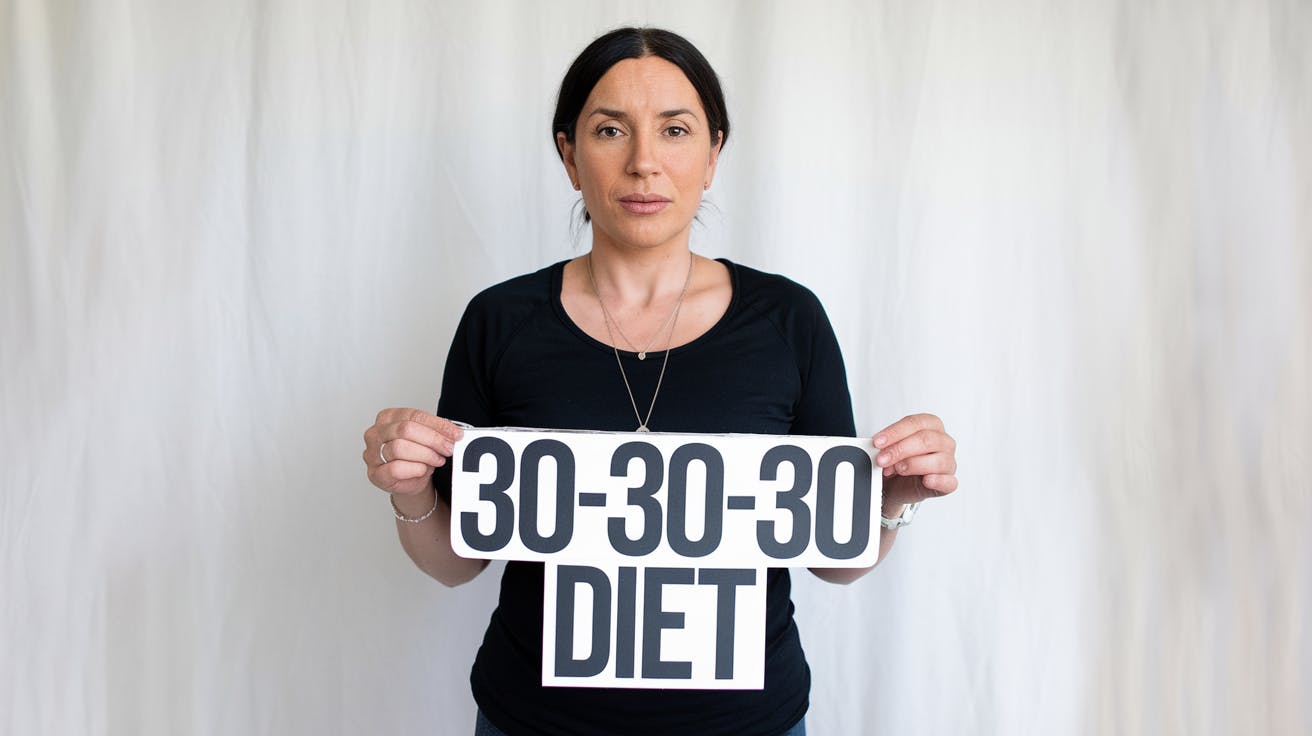How Does the 30-30-30 Diet Work?
The core principle of the 30-30-30 method involves three key components:
- Protein consumption: Consume 30 grams of protein within 30 minutes of waking up
- Morning exercise: Complete 30 minutes of low-intensity exercise first thing in the morning
- Timing: Focus on protein intake and physical activity early in the day
Dr. Sinead Roberts, a lecturer in sport and exercise nutrition, explains why protein in the morning matters to Stylist Magazine [2]: “Protein is important to repair and rebuild the body from the wear and tear of life: it is the building block of all the tissues of the body."
"In a Western diet, breakfast is typically the lowest protein meal of the day. By creating a focus on starting the day with protein, 30-30-30 can help ensure sufficient total protein intake, but alone it is not enough. You need to continue eating protein throughout the day.
“The 30-30-30 recommendations are all activities or habits that can be health-supportive.”
“Alone they are not going to determine health, but every health-supportive habit can be a positive.”
What are the benefits of the 30-30-30 method?
The 30-30-30 diet offers several advantages for those trying to lose weight:
- Establishes consistent protein intake early in the day
- Promotes exercise in the morning when fewer distractions exist
- Supports fat loss while maintaining muscle mass
- Creates a structured approach to diet and exercise
- Helps regulate metabolism and help with weight loss
Scientific Support for Morning Exercise
Research published in the journal Obesity indicates that exercise in the morning may be most effective for weight management [3]. The study found that 30 minutes of low-intensity exercise or cardio in the morning led to better adherence and results compared to other times of day. Researchers found that morning exercise was the most successful, because it was easier to stick to and people were less distracted by emails, phone calls or work meetings.
There’s also evidence to suggest that walking after eating can help lead to more weight loss [4] - so walking for just 30 minutes a day in the morning after breakfast could also help if you're trying to lose weight.
High-Protein Breakfast Options
To help you achieve the 30 grams of protein within 30 minutes of waking, consider these sources:
- Eggs
- Greek yogurt
- Salmon
- Tofu
- Protein smoothies
- Lean meats
- Cheese
Is the 30-30-30 Method Right for You?
While the 30-30-30 trend has gone viral for good reason, it's important to consider whether this new diet and exercise program aligns with your lifestyle. The approach can help you lose fat when combined with:
- A balanced diet throughout the day
- Regular exercise beyond the morning session
- Consistent protein intake throughout the day
- Overall healthy lifestyle habits
Potential limitations of the 30-30-30 diet?
It's important to note that the 30-30-30 regimen may not suit everyone:
- Forcing a high-protein breakfast might not work for all
- The timing of 30 minutes of exercise in the morning may be challenging
- Ignores the importance of daily protein intake throughout the day, as focus should extend beyond just grams of protein at breakfast
Spreading out your protein intake throughout the day instead of limiting it to breakfast will have “significant and lasting effects' on your blood sugar, satiety, and muscle growth,” Sabrena Jo, senior director of science and research at the American Council on Exercise, tells Woman’s Health [5].
“Force feeding a breakfast that you don’t normally eat could actually add calories and unnecessary food into your daily diet,” Sarah Keathley, RD, a registered dietitian at Top Nutrition Coaching, further tells Woman’s Health [5].

